EXOTIC NO MORE
EXOTIC NO MORE
Second Edition
Anthropology for the Contemporary World
EDITED BY JEREMY MacCLANCY
The University of Chicago Press Chicago and London
The University of Chicago Press, Chicago 60637
The University of Chicago Press, Ltd., London
2002, 2019 by The University of Chicago
All rights reserved. No part of this book may be used or reproduced in any manner whatsoever without written permission, except in the case of brief quotations in critical articles and reviews. For more information, contact the University of Chicago Press, 1427 E. 60th St., Chicago, IL 60637.
Published 2019
Printed in the United States of America
28 27 26 25 24 23 22 21 20 19 1 2 3 4 5
ISBN-13: 978-0-226-63597-2 (cloth)
ISBN-13: 978-0-226-63602-3 (paper)
ISBN-13: 978-0-226-63616-0 (e-book)
DOI: https://doi.org/10.7208/chicago/9780226636160.001.0001
The University of Chicago Press gratefully acknowledges a subvention from the Royal Anthropological Institute in partial support of the costs of production of this volume.
Library of Congress Cataloging-in-Publication Data
Names: MacClancy, Jeremy, editor.
Title: Exotic no more : anthropology for the contemporary world / edited by Jeremy MacClancy.
Description: Second edition. | Chicago : The University of Chicago Press, 2019. | Includes index.
Identifiers: LCCN 2019000827 | ISBN 9780226635972 (cloth : alk. paper) | ISBN 9780226636023 (pbk. : alk. paper) | ISBN 9780226636160 (e-book)
Subjects: LCSH: Anthropology.
Classification: LCC GN4 .E93 2019 | DDC 301dc23
LC record available at https://lccn.loc.gov/2019000827

This paper meets the requirements of ANSI / NISO Z39.48-1992 (Permanence of Paper).
CONTENTS
Jeremy MacClancy
Philippe Bourgois, Laurie Kain Hart, George Karandinos, and Fernando Montero
Susan Harding
Sally Engle Merry
Faye V. Harrison
Richard Jenkins
Chris Hann
James G. Carrier
Roberto J. Gonzlez
Ruben Andersson
Katy Gardner
James Fairhead and Melissa Leach
Margaret Lock
Mike Fortun and Kim Fortun
Christopher Kelty
Catherine Buerger and Richard Ashby Wilson
Marcus Colchester and Tom Griffiths
Faye Ginsburg
Christopher B. Steiner
Anthony Alan Shelton
Jeremy MacClancy
Matt Sakakeeny
TAKING PEOPLE SERIOUSLY
Jeremy MacClancy
For far too long, social anthropology has often been seen as an academic discipline dedicated to the study of abstruse customs of out-of-the-way tribes. Extraordinary ceremonies in exotic settings, unusual behaviors in isolated communitiesthese have been seen by many as anthropologists stock-in-trade. However, like so many stereotypes, this outdated image of anthropology is more misleading than revealing. For anthropologists have always set the world, and not just its more wondrous corners, as their geographical limit. Since the professionalization of the discipline in the late nineteenth century, there have been anthropologists working in Britain as well as in Papua New Guinea, in France as well as in Niger. It is just that much more work was done beyond the confines of Europe and that the potentially more sensational and more colorful instances of that work (especially those in particularly distant, even mysterious settings) have received far greater publicity.
Similarly, anthropologists have never restricted themselves to the academic investigation of the odd or the potentially entertaining, leaving the study of anything of any possible practical importance to others. From the relatively early days of the discipline, some anthropologists have dedicated themselves to research into matters of immediate relevance, such as nutritional practices, attitudinal surveys, and the fallacious presuppositions of racisms. In the 1920s the great American anthropologist Franz Boas played a major role in the intellectual attack on scientific racism. Once again, it just tends to be that the more eye-catching studies have gained more of the publics attention, skewing popular perception of the discipline in the process.
The aim of this book is to correct this imbalance and to reemphasize the public value of the discipline. Thus all the contributors strive to demonstrate exactly how todays social anthropology can make a large contribution toward the understanding of a wide range of practical social issues. In a series of essays covering a rich diversity of topics from socialisms to socio-natures, from counterterrorism to crack dealing, they seek to show how anthropologists today are committed, to a degree greater than ever before, to investigating contemporary social problems and to studying the West as much as the Rest. Even Aldous Huxley, writing in the mid-1930s during the rise of fascism, was well aware of the need to recalibrate anthropological efforts. In Eyeless in Gaza, he has one character argue that Europeans are not worse than indigenes: Theyve just been badly handledneed a bit of anthropology, thats all!
The first edition of this book, published in 2002, was reviewed generously, sold well, and as far as we can tell, was read widely. But that was seventeen years ago. The world has since turned, and anthropology with it. Some of the topics we chose then are still of overbearing importance, but have been nudged somewhat off center stage by newer, seemingly more pressing topics. For instance, this time round, we have chapters on counterterrorism, migration, hacking, museums, indigenous rights activism, etcetera. For a diversity of retained topics, new contributors have provided new chapters. Only about a third of the original contributors have written again, for this edition. And all of them have substantially, in some cases wholly, rewritten their contributions: because theyve had to. As Jenkins points out in his piece on ethnicity and nationalism, he certainly didnt foresee in 2002 that politicians would return to openly playing the race card; that populism would rise and rise; and that the advent of IT would create echo chambers for the fabricators of post-truths.
All too often many anthropologists, despite their best intentions, have hidden their insights and cloaked their findings in the thickest of prose. Their texts, weighed down with recondite terms, ugly neologisms, and an excess of polysyllabic abstract nouns, are usually difficult to read and harder to finish. This is as unnecessary as it is unwanted. If an idea is worth expressing, the chances are it can be most powerfully expressed in a simple manner. All the contributors to this book have done their best to uphold this principle, by trying to write their essays in an as clear, unpretentious, and jargon-free way as possible. A key purpose of this book is to put the anthropological message across. We want the taxpayers, who ultimately underwrite most of our costs, to know what we are up to, not dive for the dictionary before they have turned the first page. As Gonzlez puts it in his chapter, What anthropologists have learned over the past century and a half is too important to withhold from others, and too important to hide behind bloated or pretentious jargon.
The term anthropology



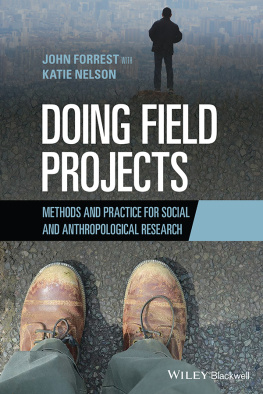

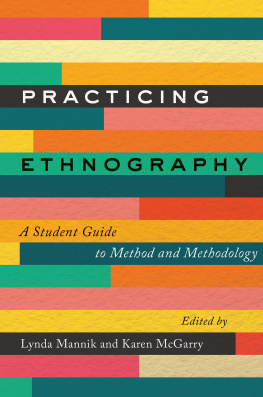

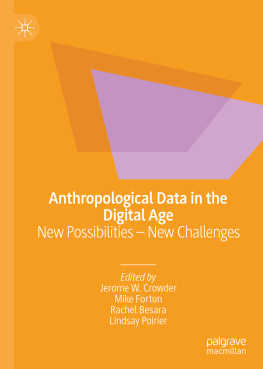
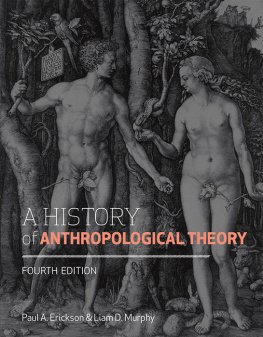
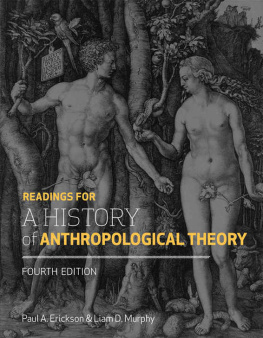

 This paper meets the requirements of ANSI / NISO Z39.48-1992 (Permanence of Paper).
This paper meets the requirements of ANSI / NISO Z39.48-1992 (Permanence of Paper).